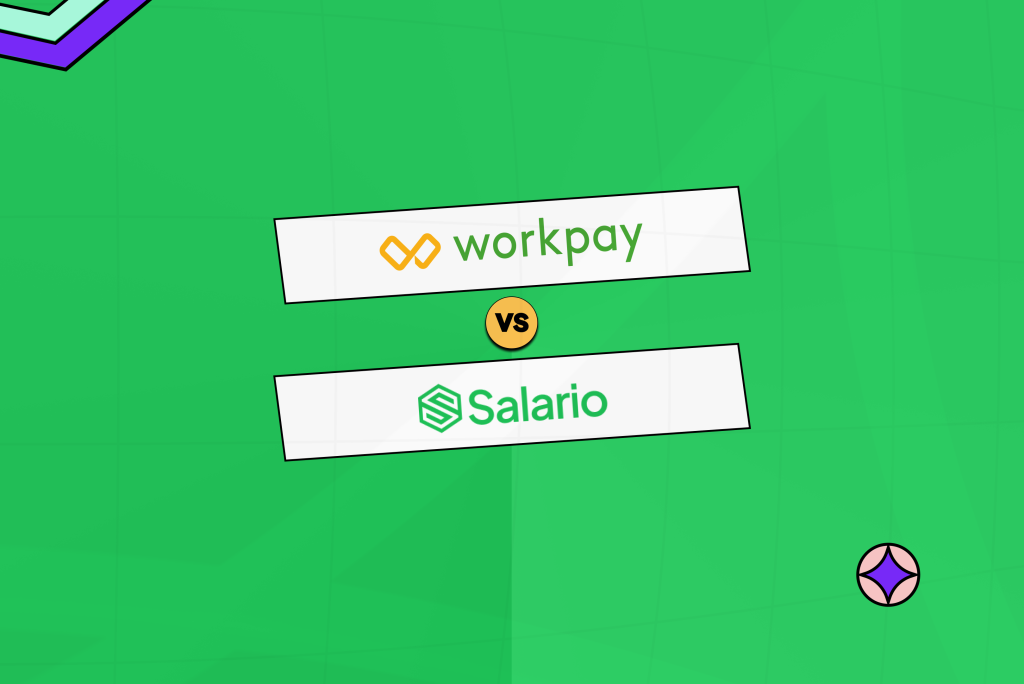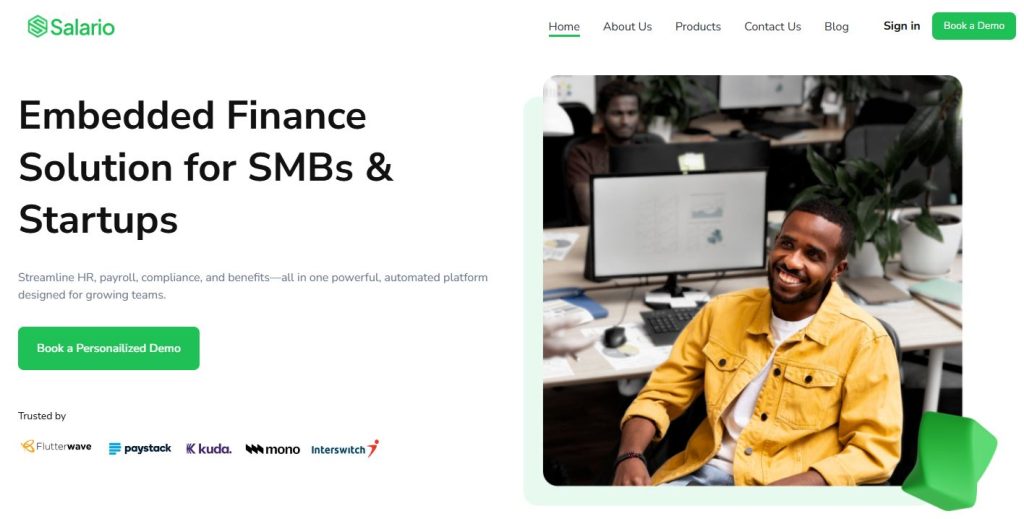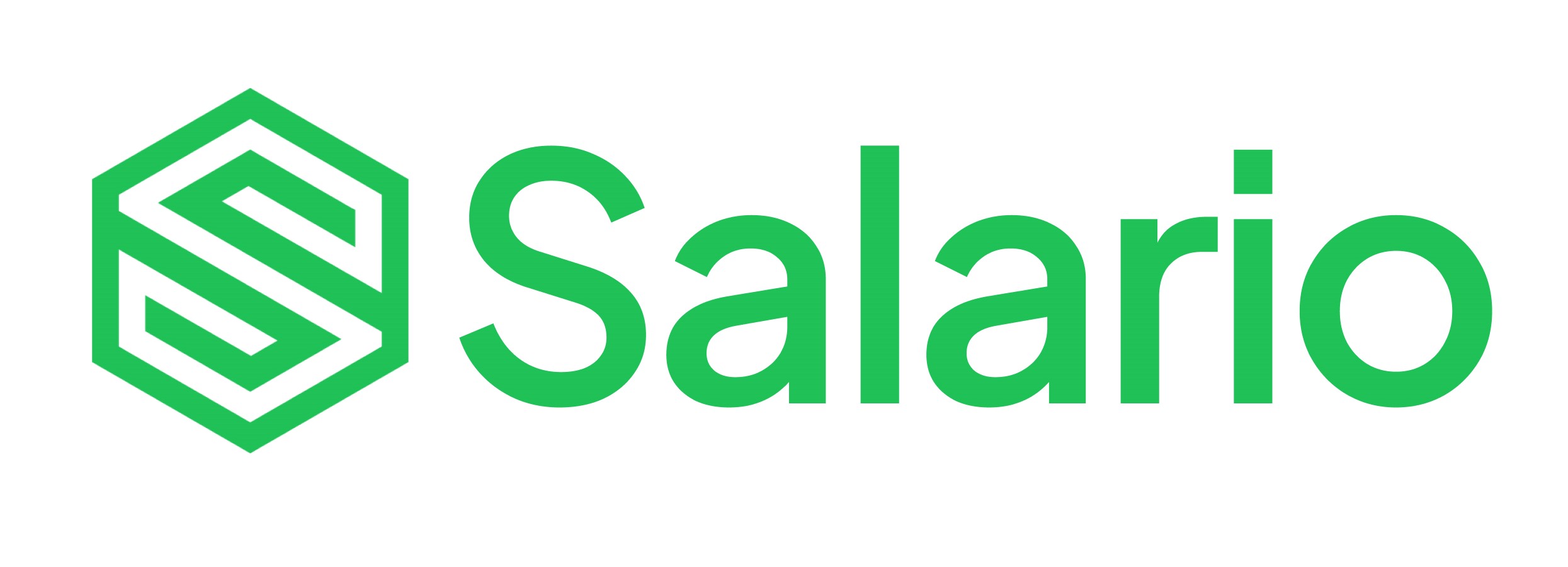
For many businesses in Nigeria, payroll management is often seen as just another administrative task until something goes wrong and unfathomable chaos ensues. From missed salary payments to pension compliance issues, even small mistakes can lead to big problems. Choosing the right payroll and HR software isn’t just about making life easier; it’s about safeguarding your business and keeping your employees happy.
When it comes to WorkPay vs Salario, both platforms offer solutions aimed at automating salary processing, tax remittance, and HR management. But depending on your business size, industry, and compliance needs, one may serve you better than the other. In this article, we’ll explore how both tools stack up, helping you make an informed choice tailored to the Nigerian business environment.
Overview – What Do WorkPay and Salario Offer?
Both WorkPay and Salario are designed to make payroll and HR management easier for businesses across Africa. While they share the same broad goal, automating salary payments, handling statutory deductions, and streamlining employee data, they approach it differently based on their core audience and market focus.
WorkPay

WorkPay was founded in Kenya and has grown to serve a variety of businesses across East and parts of West Africa. It offers tools for payroll, attendance tracking, and employee benefits, with additional modules for HR records and time management. Its regional footprint is expanding, and it’s particularly useful for companies operating across multiple African countries.
Salario
On the other hand, Salario was explicitly built for Nigerian businesses, especially SMES, NGOS, schools and more. It focuses on simplifying payroll processing in line with local tax regulations. It offers features that reflect the realities of Nigerian business operations, such as multi-schedule payrolls and automation of statutory deductions (PAYE, NHF, pensions).
In this WorkPay vs Salario comparison, both tools aim to reduce payroll stress, but Salario takes a distinctly localized approach, tailoring its services to Nigerian compliance and cash flow patterns.
WorkPay vs Salario – How Do They Handle Nigerian Payroll Regulations?
One of the most critical concerns for any Nigerian business is staying compliant with local tax and pension laws. Missteps in PAYE remittance, NHF contributions, or pension deductions can quickly result in penalties or strained relationships with employees. In the WorkPay vs Salario debate, compliance readiness is a defining point of difference.
Salario

Salario is purpose-built for the Nigerian market, so it comes pre-configured with local tax rules, deduction rates, and statutory payment structures. It automates PAYE calculations based on state-specific rates, handles pension and NHF contributions, and generates remittance-ready reports that comply with Nigerian regulatory formats. Schools, in particular, benefit from this level of accuracy and automation given their varied staff categories and irregular payroll cycles.
WorkPay
WorkPay, while offering multi-country payroll functionality, is primarily optimized for East African tax environments like Kenya and Uganda. Nigerian users may find that local compliance requires additional setup or customization, mainly if their operations are entirely based within Nigeria.
So, if payroll compliance, pension automation, and PAYE accuracy are your top priorities, Salario provides a more focused and out-of-the-box solution for Nigerian employers.
WorkPay vs Salario – Ease of Use – Which Platform Is Simpler for Nigerian Teams?
Payroll and HR software shouldn’t require a full IT department to operate, especially for small and mid-sized businesses, NGOS or schools without technical teams. In comparing WorkPay vs Salario, user experience becomes a practical concern: how easy is it to get started, train staff, and run payroll smoothly month after month?
Salario
Salario was built with simplicity at its core. Its interface is clean, uncluttered, and tailored for Nigerian administrative workflows. Most users, whether they’re bursars, HR officers, payroll managers, or school proprietors, can get started with minimal onboarding. Features like bulk salary uploads, automated payslip generation, and self-service portals are just a few clicks away. Even users unfamiliar with digital payroll tools find the platform easy to use.
WorkPay
WorkPay, while feature-rich, takes a more layered approach. Its broader regional focus means the platform is designed to accommodate various business types and compliance structures. As a result, the interface may feel more complex, especially for users focused solely on Nigerian operations. Some modules also require additional setup or training before they become fully functional.
For Nigerian teams looking for a plug-and-play payroll solution with minimal learning curve, Salario is the more accessible option, especially for SMES that value speed and simplicity over complex feature sets.
WorkPay vs Salario – What Tools Do You Get Beyond Payroll?
Although payroll is the main function of both platforms, many companies are also seeking HR tools that complement payroll, such as the ability to check attendance, manage leaves, access employee data, and generate compliance reports. Think about more than just salary disbursement when comparing WorkPay vs Salario. How else can you use the platform to manage?
WorkPay
WorkPay offers a broad suite of HR tools, including time tracking, shift scheduling, and employee self-service. It also includes modules for expense claims and performance monitoring—features that may appeal to larger organizations or those with distributed teams across multiple countries. Its mobile app extends access to HR data and payroll updates for both employees and administrators.
Salario
Salario, while more streamlined, focuses on features that solve specific Nigerian business pain points. In addition to payroll, it supports automated statutory deductions, staff categorization, payslip distribution, and basic employee data management. It also offers multi-schedule payroll runs, which is especially useful for institutions with different pay structures.
If your business needs deep HR functionality across multiple regions, WorkPay may be a more versatile option. But if you want a focused solution that automates local payroll tasks without overwhelming your team, Salario delivers exactly what most Nigerian SMES need, no fluff, no friction.
WorkPay vs Salario – Pricing and Affordability – Which One Gives Better Value?
When it comes to payroll and HR tools, cost isn’t just about what you pay, but it’s about what you get for the price. For many Nigerian businesses, especially SMES, NGOs and schools, affordability must go hand in hand with functionality. In the WorkPay vs Salario comparison, pricing structure and value for money are key factors.
Salario
Salario offers one of the most transparent and accessible pricing models in the market. It has three available plans starting with its lowest at ₦1,500 per employee per month, its mid tier plan at ₦2,500 per employee per month, and its highest pla at ₦4,000 per employee per month. It’s clearly designed to serve small to mid-sized businesses without compromising on core features. There are no surprise charges for compliance tools or payroll automation; everything is bundled into a simple, predictable fee.
WorkPay
WorkPay also offers a three-tiered pricing model, and businesses typically need to request a quote to get specific details. While it may offer advanced HR features in higher tiers, this can push up the overall cost, especially for companies that only need basic payroll support tailored to Nigerian operations.
If you’re looking for a solution that’s cost-effective, scalable, and locally focused, Salario delivers strong value without unnecessary overhead, making it one of the best WorkPay alternatives for Nigerian businesses.
WorkPay vs Salario – Customer Support and Local Presence
For any business using digital payroll systems, especially in Nigeria, where connectivity and policy changes can present sudden challenges, responsive support and local understanding make a real difference. When comparing WorkPay vs Salario, it’s not just about the software, but also about the team behind it.
Salario
Salario offers Nigerian-based support with a deep understanding of local compliance, banking, and specific payroll needs. Whether it’s PAYE updates, state-level pension queries, or resolving a salary disbursement issue, their team is accessible and responsive. Because the platform is built with Nigerian users in mind, support is tailored, not generic.
WorkPay
WorkPay is expanding its reach across Africa, but it mostly works in East Africa, with a growing presence in Nigeria. Their customer care is usually top-notch; however, when it comes to issues specific to Nigeria, their reaction times and understanding of the payroll environment may be lacking.
If your business values hands-on support, local responsiveness, and direct access to a team that understands the Nigerian business landscape, Salario holds a clear advantage.
Our Final Verdict – Which Payroll Tool Is Right for You?
Both WorkPay and Salario bring strong solutions to the table, but your ideal choice depends on what matters most to your business. If you’re managing a multi-country workforce with complex HR needs across borders, WorkPay offers broader functionality and regional flexibility.
However, if you’re a Nigerian SME, school, NGO, or business looking for a simple, affordable, and compliance-ready payroll system that just works, Salario is the smarter, more focused option. It’s built specifically for the Nigerian context, backed by local support, and priced with real businesses in mind.
For stress-free payroll, local tax accuracy, and a solution designed to grow with you, Salario isn’t just an alternative; it’s the right fit.
Book a free demo to see how it can work for your business.
